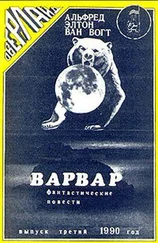No enthusiasm; a language made up of monosyllables, the shortest possible, and even so there is too much of it.
Moderate, gently sad when in their cups, restful and smiling.
Even though the eyes and nose and ears and hands of a Chinaman are so tiny, they are not filled by his being. He leans far backward. Not at all by concentration. No, the Chinaman’s soul is concave.
Rapid little gestures, but not hard, not even precise. No emphasis, nothing showy. Mad about firecrackers, he shoots them off on every occasion, and their brief sound, sharp without consequence and without resonance, pleases him (like the noise of the clogs that the women have on their feet).
He likes very much, too, the abrupt croaking of the frog.
The moon pleases him, the Chinese woman resembles it amazingly. That discreet clarity, that precise contour, appeals to him like a brother. In fact, many of them are under the auspices of the moon. They do not care in the least for the sun, that big bumptious fellow; they are very fond of artificial light, the oil lamps which, like the moon, throw a good light on them alone, and cast no brutal rays.
Faces astonishingly impregnated with wisdom, beside which the Europeans look exaggerated in every respect, veritable wild-boar snouts.
No debased types, nor mentally backward; even the beggars, though these are indeed rare, appear to be quite lively and good company and intellectual — many of them like ‘fins Parisiens,’ with an impression of frail correctness such as is to be found at times among the offspring of old aristocratic families weakened by intermarriage.
The Chinese woman’s body is admirable, standing straight as a plant, never that bitch look European women are so apt to have, the old as well as the young with such agreeable faces, not extenuated, but alert and wide-awake, a body that always does its work; and their tenderness to each other and with their children is charming.

The Chinese has not exactly, as it is understood elsewhere, a religious mind. He is too modest for that.
‘To seek the principles of things that are hidden from human intelligence, to perform extraordinary acts that appear foreign to man’s nature, these are things that I would not like to do.’ (Extract from a Chinese philosopher, quoted by Confucius with a satisfaction easily imaginable.)
Oh, no, he would be ashamed. He would not want to exaggerate. Imagine it! And then he is practical. If he bothers about anyone, it is about devils, the bad ones only, and not unless they do some evil. Otherwise, what would be the use?
It is, however, through this very self-effacement that the Divine together with illusion has slipped into them.
Buddha with the smile that effaces all reality was bound to reign in China. But his Indian gravity has sometimes disappeared.
I visited, among other temples, the temple of the Five Hundred Buddhas, at Canton.
Five hundred. If only there were a single good one in the lot, a really and truly good one! Five hundred, among which was Marco Polo with a hat, probably supplied by the Italian vice-consul. Five hundred, but not one on the road, the very beginning of the road to Holiness.
No more hieratic positions favorable to contemplation. Some hold two or three children in their arms, or play with them. Others, irritated, scratch a thigh, or raise one leg as though in a hurry to go away, waiting with impatience to take a little turn; almost all with the sly little faces of examining magistrates, of examiners, or of eighteenth-century abbés; several, obviously, are having a good laugh over the ingenuousness of it all; finally, and these are the most numerous, the careless and evasive Buddhas. ‘Oh, you know, we fellows… ’
You do not know whether to choke with laughter, with rage, with tears, or simply to think that stronger than the personality of a saint, of a demi-god, is the leveling and vital power of human pettiness.
In a temple, the Chinaman is perfectly at ease. He smokes, he talks, he laughs. At either side of the altar fortune-tellers read the future from ready-printed formulas. Little sticks roll in a box, one always protrudes, and you draw it out. It has a number on it. The leaflet about the future with the corresponding number is found, you read. .. and all you have to do after that is to believe in it.

Few Europeans like Chinese music. Yet Confucius, who was not one to exaggerate, far from it, was so much taken with the charm of a melody that he remained three days without being able to eat.
I would not go as far as that, but except for certain Bengalese melodies, I must say it is Chinese music that affects me the most. It moves me. What makes the European so uncomfortable is the orchestra, with its din underlining and interrupting the melody. That is something peculiarly Chinese. Like their fondness for firecrackers and explosives. One has to get used to it. Besides, curiously enough, in spite of this appalling noise, Chinese music is all peace, not sleepy, not slow, but pacific, exempt from the desire to make war, to compel, to command, exempt even from suffering, affectionate.
How good, agreeable and sociable this melody is! It has nothing blaring, idiotic, excited about it, it is quite human and good-natured, childlike and popular, joyful and ‘family reunion.’
(With regard to this, the Chinese say that European music is monotonous. ‘It is nothing but marches,’ they say. Indeed, how the White men do trot and how they blow the trumpet!)
And just as certain people have only to open a book by such-and-such an author and they burst into tears without knowing why, so when I hear a Chinese melody, I feel relieved from the errors and the evil tendencies that are in me and from a kind of excess with which I am afflicted daily.
But there is another charm, not greater, but perhaps more constant; it is the Chinese spoken language.
Compared with this language all others are pedantic, burdened with a thousand ridiculous things, laughable in their monotony — languages for soldiers. That is what they are.
Now the Chinese language was not made like the others, forced by a jostling and controlling syntax. The words in it were not constructed harshly, with authority, method, redundancy, in a conglomeration of resounding syllables, nor along etymological lines. No, just words of one syllable, and that syllable of uncertain resonance. The Chinese sentence resembles weak exclamations. A word rarely contains more than three letters. Often a drowning consonant (the n or the g ) envelops it in the sound of a gong.
Finally, in order to be still closer to nature, this language is sung. There are four tones in the Mandarin language, eight in the dialects of Southern China. None of the monotony of the other languages. With Chinese, one goes up, one goes down, one goes up again, one is halfway there, and one dashes off.
It still remains, it plays with, is completely of, nature.

Chinese love is not European love.
The European woman is in a transport of love for you — then all of a sudden she forgets you on the edge of the bed, musing over the serious side of life, about herself, or about nothing, or maybe she has merely relapsed into ‘White anxiety.’
The Arab woman behaves like a wave. The stomach dance, do not forget that, is not a mere exhibition for the eyes; no, you are caught in the surge, you are carried away and you find yourself a bit later, blissful, without knowing exactly what has happened to you, nor how.
Читать дальше













